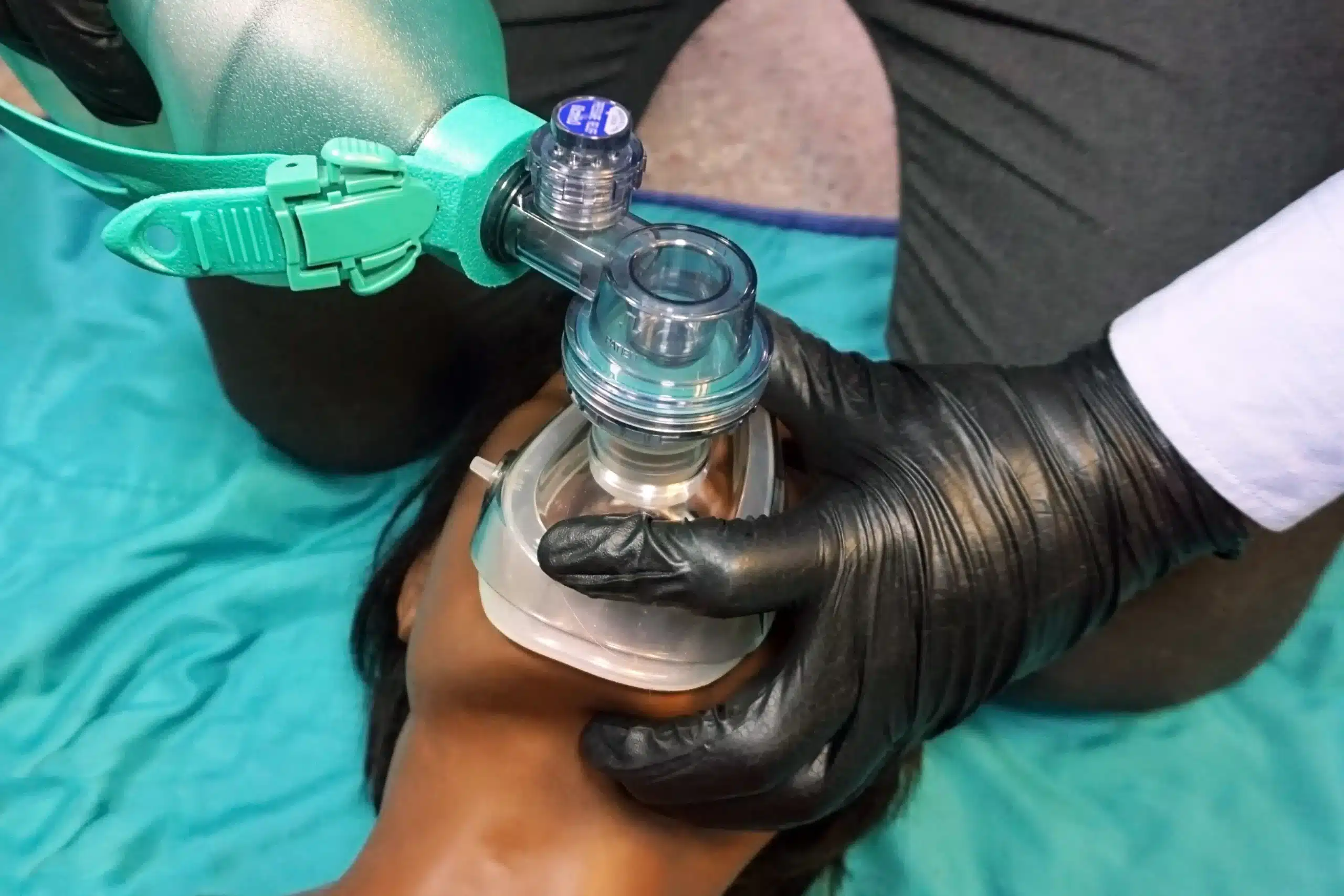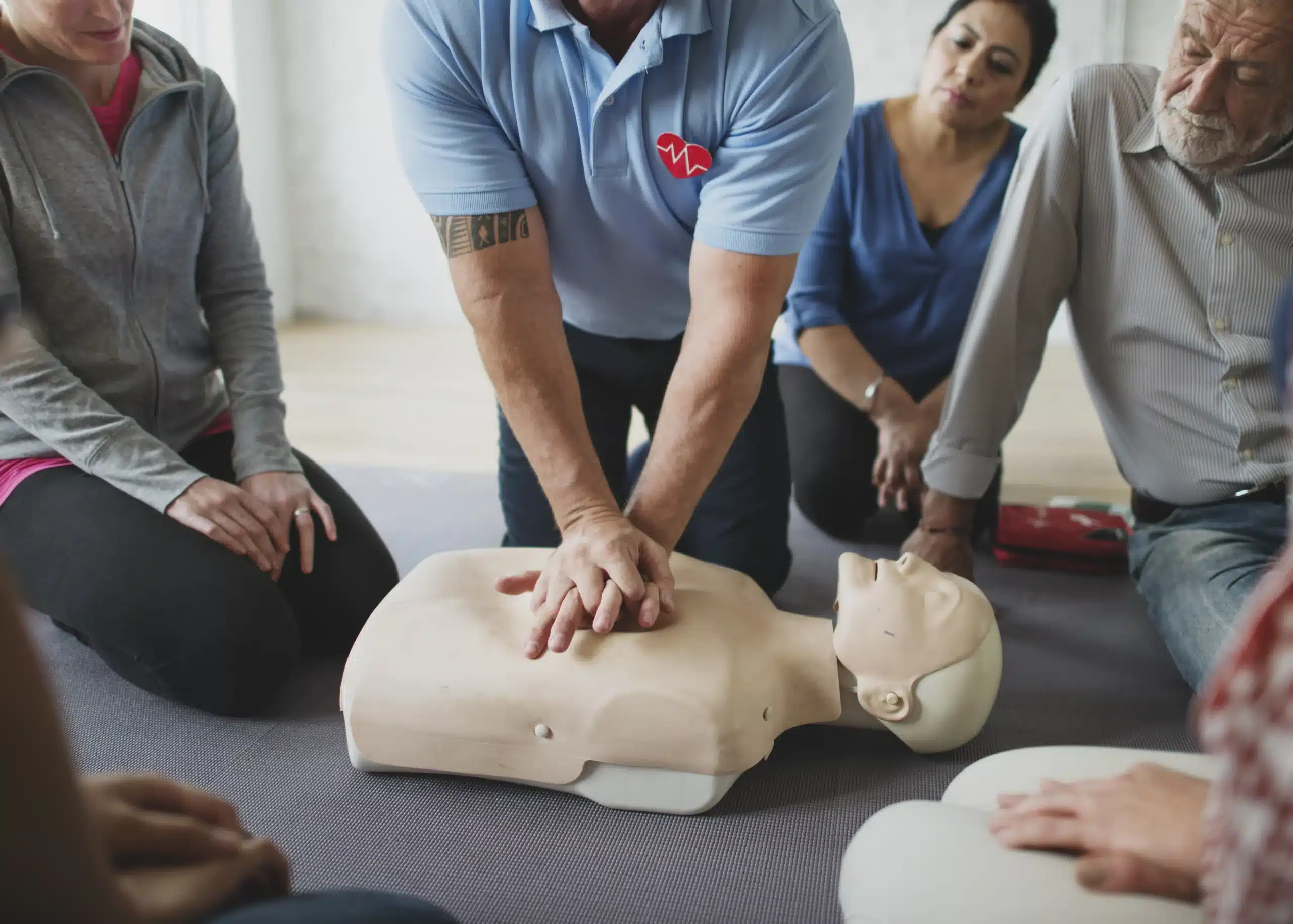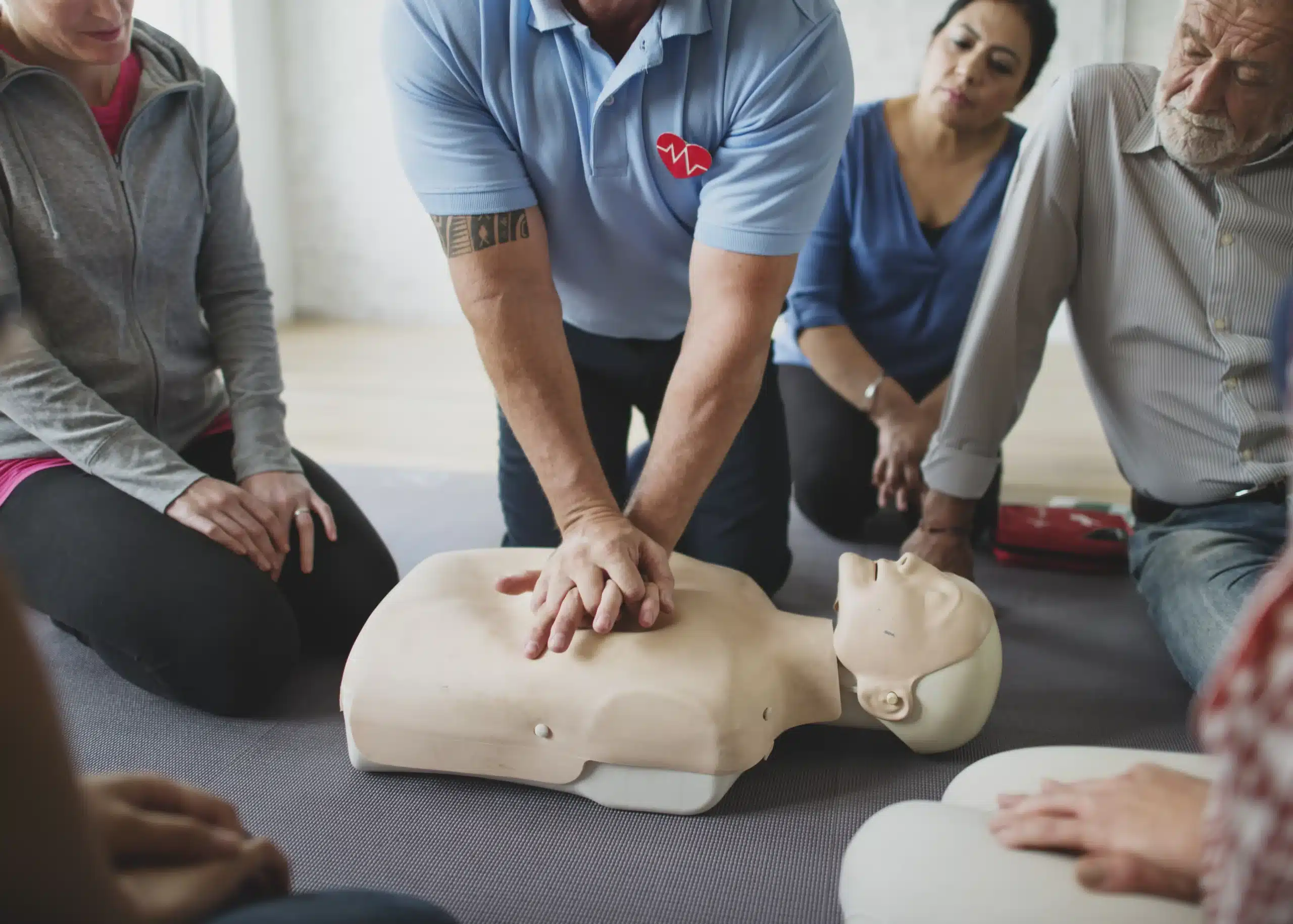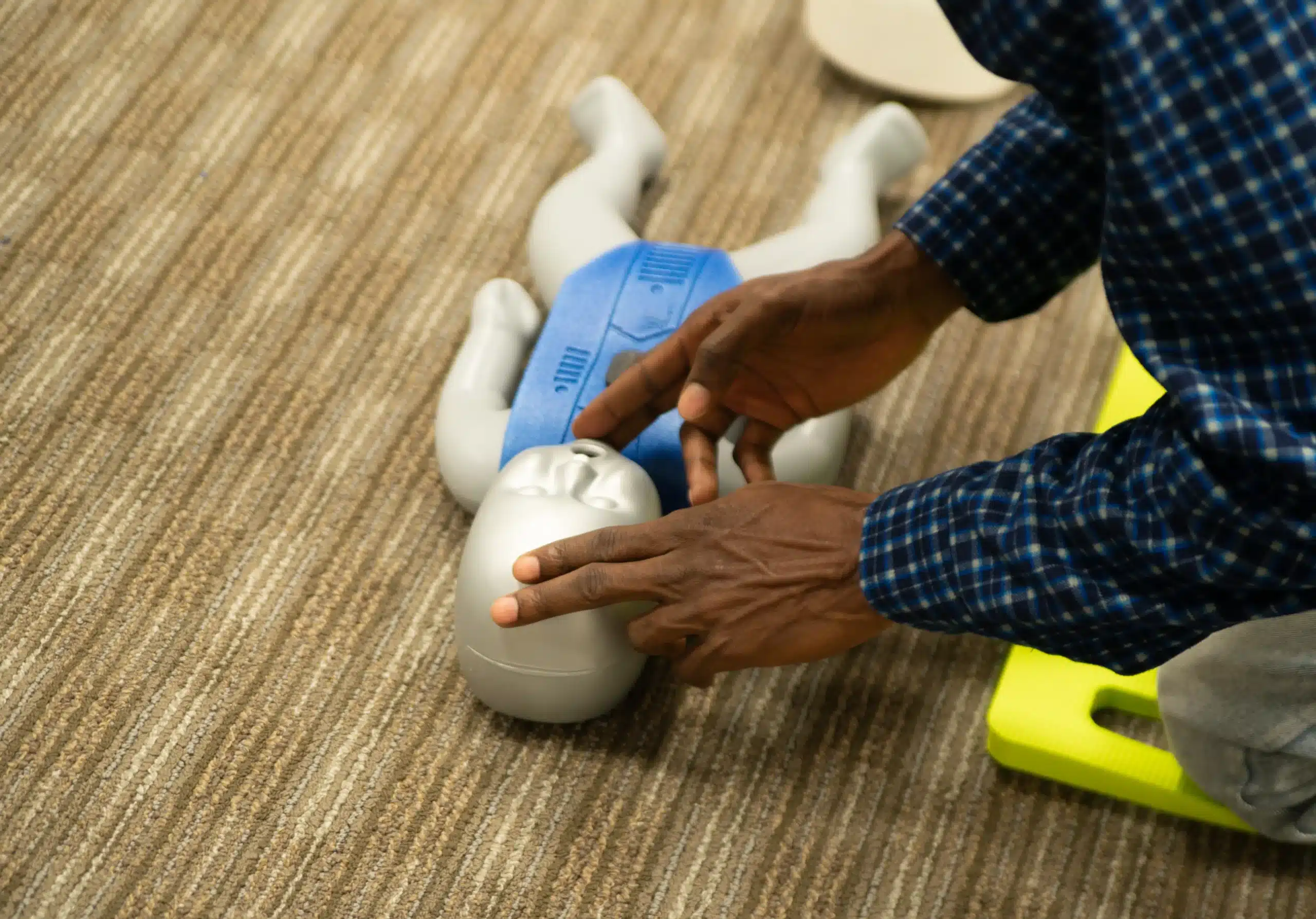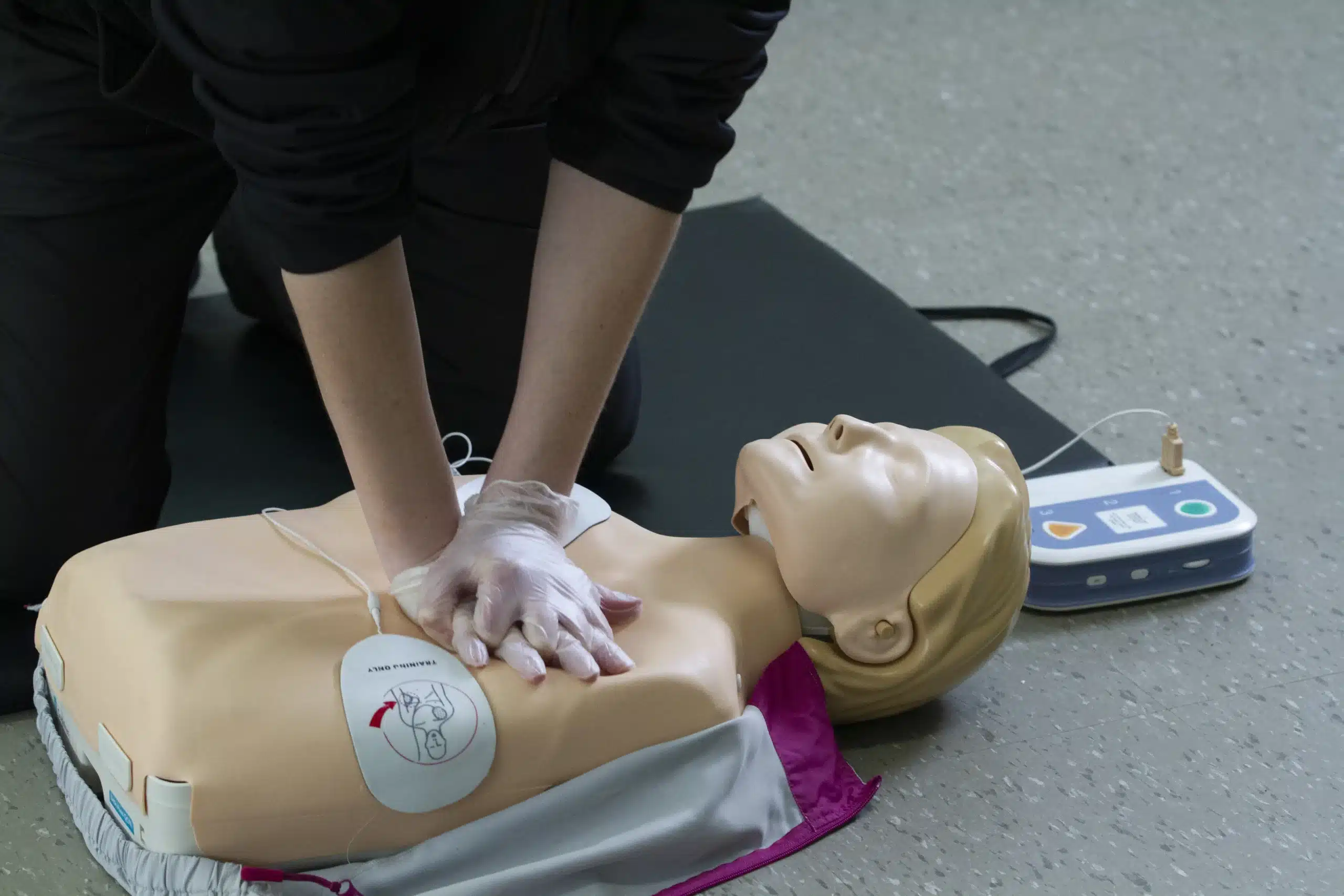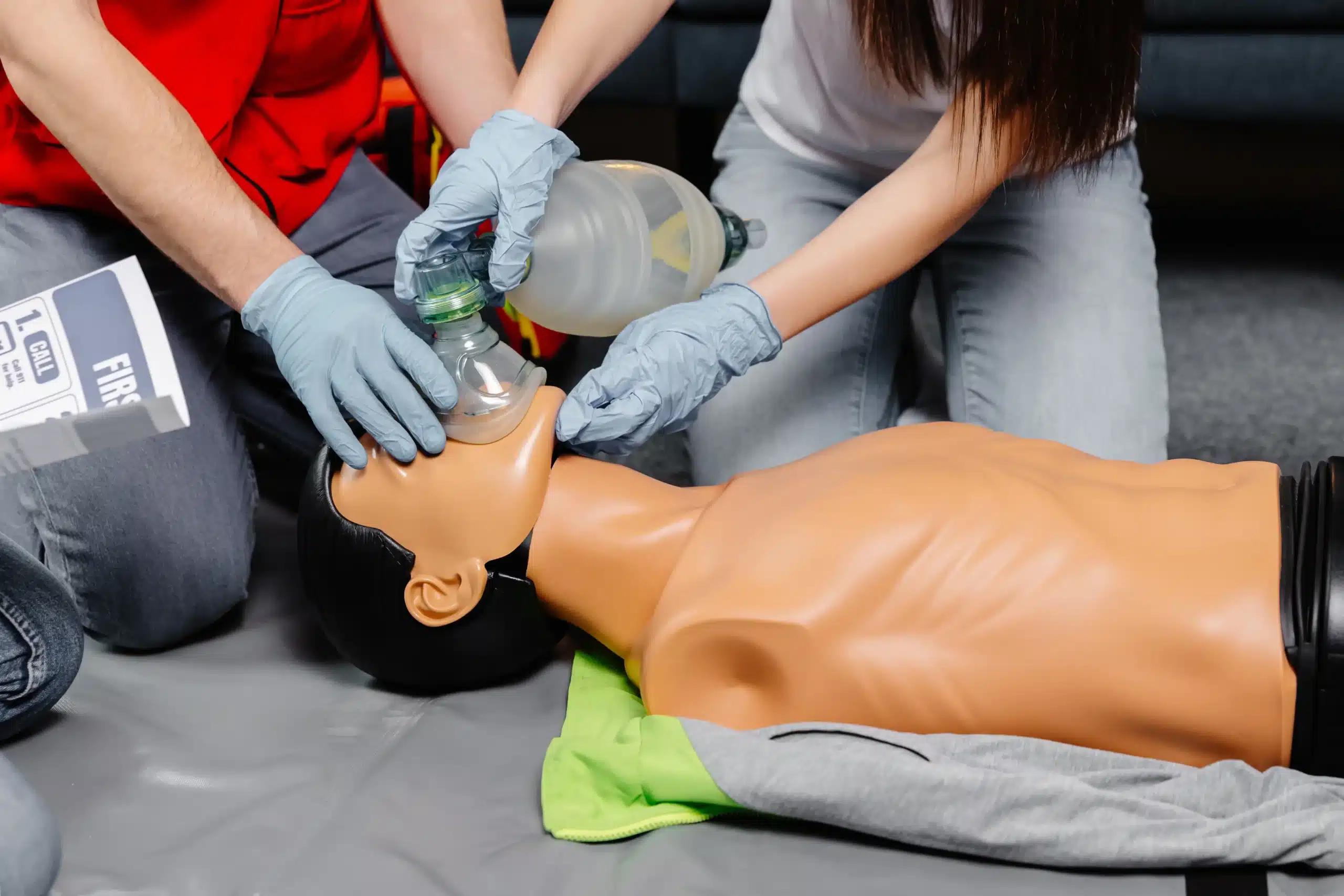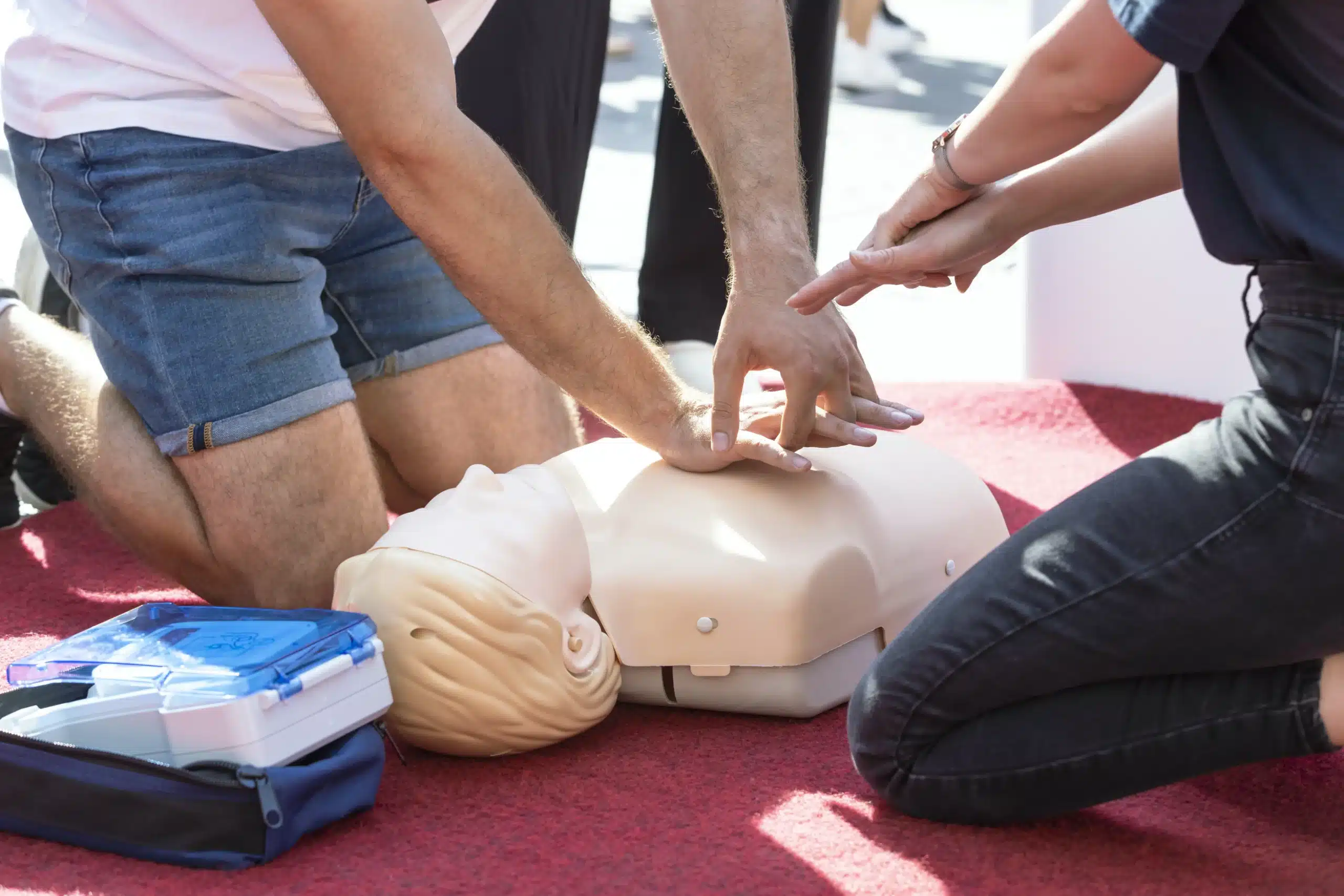Working in healthcare in Cupertino means being prepared for anything. From routine check-ups to critical emergencies, you need the skills and confidence to handle any situation. That’s where Advanced Cardiovascular Life Support (ACLS) certification comes in. It’s more than just a credential—it’s a comprehensive toolkit equipping you with the knowledge and skills to manage life-threatening cardiovascular emergencies. This article explores everything you need to know about ACLS courses in Cupertino, from understanding the certification process to finding the right training provider for your needs. We’ll cover the benefits of ACLS certification, common misconceptions, course formats, costs, and how to prepare for your training. Whether you’re a seasoned healthcare professional or just starting your career, this guide will help you find the perfect ACLS course in Cupertino to enhance your skills and advance your career.
Key Takeaways
- ACLS is more than just CPR: It equips healthcare professionals with advanced life-saving skills, including airway management, medication administration, and team coordination, to effectively manage complex cardiovascular emergencies. Regular recertification is crucial for staying current with evolving best practices.
- Choosing the right course matters: Consider factors like location, schedule flexibility, instructor qualifications, and the provider’s accreditation. Explore various learning formats, including in-person and blended learning options, to find the best fit for your learning style. Campbell CPR Classes offers a range of AHA-certified courses in a convenient location.
- Preparation is key for success: Familiarize yourself with the ACLS guidelines and algorithms before your course. Practice your skills regularly and develop strategies for managing stress and communicating effectively in high-pressure situations. Ongoing learning through continuing education and staying updated on the latest guidelines will help you maintain your skills and provide optimal patient care.
What is ACLS Certification in Cupertino?
This section explains what Advanced Cardiovascular Life Support (ACLS) certification entails and why it’s so important, especially for healthcare providers in Cupertino. We’ll also clear up some common misconceptions about ACLS training.
What is ACLS & Why is it Important?
ACLS certification equips medical professionals with the knowledge and skills to respond to cardiovascular emergencies. It’s a comprehensive program covering a range of life-saving interventions, from basic life support and advanced airway management to pharmacology. Think of it as a crucial toolkit, giving healthcare providers the resources they need to manage life-threatening situations. ACLS training emphasizes effective assessment, treatment, and monitoring of patients in these critical situations. Applying these ACLS principles in diverse clinical settings—each with its own unique considerations—makes this training invaluable for healthcare professionals in Cupertino. Whether you’re in a hospital, clinic, or responding to an emergency out in the field, ACLS training prepares you to deliver timely and effective care.
Common ACLS Training Misconceptions
One common misconception is that ACLS is simply an advanced form of CPR. While CPR is a key element, ACLS covers a much broader scope of interventions. It includes complex algorithms, medication administration, and the importance of team dynamics during resuscitation efforts. Another misconception is that ACLS certification is permanent. Actually, ACLS certification requires renewal every two years. This ensures providers stay current with the latest guidelines and best practices, maintaining the highest standard of patient care. So, while CPR is foundational, ACLS builds on that foundation to provide a more comprehensive approach to cardiovascular emergencies. Regular recertification is essential to keep your skills sharp and aligned with current medical knowledge.
Find Top ACLS Course Providers in Cupertino
Finding the right ACLS course provider is crucial for a positive and effective learning experience. Here are a few providers in and around Cupertino offering ACLS certification:
Campbell CPR Classes
Campbell CPR Classes offers American Heart Association (AHA) ACLS Certification and renewal courses in Campbell. They also provide other certifications like BLS, PALS, and First Aid, which can be helpful additions to your skillset. For those looking for cost-effective training, they have a Low Price Guarantee. They also offer discounted group rates.
The CPR Training Center
Located in nearby San Jose, The CPR Training Center provides AHA ACLS certification classes. Their initial ACLS course is a comprehensive, in-person program designed for both new certifications and renewals.
Santa Clara CPR Classes
Santa Clara CPR Classes offers AHA ACLS certification and is another convenient option for those in the area. They offer courses taught by experienced instructors, covering the essential skills and knowledge needed for ACLS certification.
Other Local Providers
You can also explore other training centers like Safety Training Seminars, which offers various AHA certifications including ACLS in Campbell. Expanding your search to nearby cities can give you a broader range of options. If you have any questions or need help finding a provider, feel free to reach out.
Explore ACLS Course Formats & Duration
Understanding the different ACLS course formats and their time commitments can help you choose the best option for your schedule and learning style. Whether you thrive in a traditional classroom or prefer the flexibility of online learning, there’s an ACLS course designed to meet your needs.
In-Person Training
In-person ACLS courses offer a hands-on learning experience ideal for those who value direct interaction with instructors and peers. These courses are especially beneficial for refreshing essential skills and staying updated on the latest guidelines. In-person training typically involves practicing essential techniques like airway management, rhythm recognition, and team dynamics simulations. This format provides a structured environment for those renewing their ACLS certification.
Online & Hybrid Options
For those seeking flexibility, a blended learning approach (sometimes called “HeartCode ACLS”) might be the perfect fit. This format combines online coursework with an in-person skills session. You can complete the cognitive portion online at your own pace, then schedule a shorter in-person session to demonstrate your skills and receive your certification.
Time Commitment
The time commitment for ACLS courses varies depending on the format and your prior certification status. Initial ACLS certification typically requires around 12 hours of in-person instruction. Renewal courses are generally shorter, often lasting around six hours. Hybrid courses offer more flexibility, allowing you to complete the online portion over several shorter sessions before attending a briefer in-person skills check.
Evaluate ACLS Certification Costs in Cupertino
Getting ACLS certified is an investment in your career and the safety of your patients. But how much should you expect to spend? Let’s break down the typical costs associated with ACLS certification in Cupertino.
Average Prices
ACLS certification involves a few key components, each with its own cost. The initial ACLS course itself usually runs around $250. You’ll also need the ACLS Provider Manual, which is typically about $30. If you choose a blended learning option with a skills check-off, that portion will likely cost around $150. Keep in mind that these prices can vary between providers, so it’s always a good idea to check with specific training centers like Campbell CPR Classes for their most up-to-date pricing. Knowing the individual costs helps you budget effectively for your certification.
Discounts & Group Rates
Many training centers offer discounts, especially for groups. If you’re signing up with colleagues or friends, look for group discounts. Some centers offer a percentage off, like 20% for groups of two to five people, sometimes using a discount code. You might even find larger discounts on certain dates. Check with providers like Campbell CPR Classes about their group rates and any available discounts. Training as a team can be a smart way to save money.
Compare Value
Beyond the sticker price, consider the overall value. The quality of the curriculum matters. The American Heart Association (AHA) provides evidence-based training that’s regularly updated, which is crucial for effective patient care. Look for providers who offer transparent pricing and clear information about what’s included in their courses. Some providers even offer a low price guarantee, giving you extra confidence in your investment. A money-back guarantee can also offer peace of mind. Remember, the value of your certification goes beyond the initial cost—it’s about the skills and confidence you gain to handle critical situations.
Prepare for ACLS Certification
Getting ready for ACLS certification involves understanding the prerequisites and taking steps to set yourself up for success. This preparation will help you succeed in the course and build a strong foundation for your medical career. At Campbell CPR Classes, we want you to feel confident and prepared, so let’s break down how to get ready.
Required Knowledge & Certifications
Before you sign up for an ACLS course, know that you’ll need a current BLS CPR provider card for healthcare providers. ACLS builds upon the foundational life support skills taught in BLS, such as high-quality CPR and using a bag-mask device. Think of BLS as your basic life support toolkit, and ACLS as the advanced toolkit for critical situations. You can find more information about our BLS courses on our BLS page. Some providers also require a current PALS certification, especially if you’re working in pediatrics.
If you’re renewing your ACLS certification, you should already have a valid or recently expired ACLS provider card. Renewal courses cover the same material as the initial certification but are often shorter, focusing on key updates and a refresher of essential skills. Our ACLS Renewal Cupertino guide offers more details on renewing your certification.
Course Preparation
Once you’ve confirmed you meet the prerequisites, start preparing for the course itself. Reviewing the current ACLS guidelines and algorithms is a great way to get started. Familiarizing yourself with these protocols ahead of time will help you absorb the information more effectively during the course.
Beyond the technical aspects, preparing for the psychological demands of ACLS training is also important. Working through realistic medical scenarios can be stressful, so understanding how to manage stress and communicate effectively within a team is crucial. This article offers insights into the psychological challenges healthcare workers face during ACLS training and provides strategies for managing stress and promoting well-being. Thorough preparation is key to confidently handling the challenges of ACLS training and becoming a skilled healthcare provider.
Know What to Expect from ACLS Courses
Getting ready to take an ACLS course? Here’s a look at what you can expect.
Course Content & Objectives
ACLS courses cover the skills healthcare providers need to assess and treat patients during emergencies. You’ll learn essential protocols applicable in different clinical settings, each with its own unique challenges. This comprehensive approach helps prepare you to handle real-world emergencies effectively. For example, understanding how to manage a patient’s airway is a critical component of ACLS training.
Hands-on Training
ACLS courses aren’t just lectures. Hands-on practice is key to mastering these life-saving techniques. In-person training lets you develop these skills in a safe, controlled environment. Plus, simulated scenarios help you prepare for the complexities of real-life emergencies, building your confidence for actual critical situations.
Skills Assessment & Certification
After completing the course, you’ll take a skills assessment to demonstrate your proficiency in the techniques you’ve learned. Passing this assessment earns you your ACLS certification, which is often a requirement for many healthcare jobs. To keep your skills sharp and knowledge current, you’ll need to recertify regularly and continue your education. This ensures you stay up-to-date with the latest guidelines and best practices in emergency care.
Overcome ACLS Training Challenges
ACLS training and certification can be demanding. But with the right preparation and mindset, you can overcome these hurdles and succeed. Let’s break down some common challenges and how to address them:
Manage Your Time
Time constraints in high-pressure scenarios are a significant challenge for healthcare professionals. Think of it like this: during a real cardiac emergency, seconds matter. Effective time management during your ACLS training is key to building the skills you’ll need to respond quickly and efficiently under pressure. Practice each skill until you can perform it smoothly and confidently within the allotted time. Consider breaking down complex skills into smaller, manageable steps to improve your speed and accuracy.
Communicate Effectively
Clear communication is essential for successful teamwork in any medical setting, especially during emergencies. A communication breakdown can hinder team dynamics and delay critical treatment. Practice communicating clearly and concisely with your team members during simulations. Use closed-loop communication—repeating back instructions and confirming actions—to ensure everyone is on the same page. This will help you develop the communication skills needed to coordinate effectively in real-world emergencies.
Handle Stress
It’s normal to feel stressed when dealing with cardiac emergencies, both in training scenarios and real-life situations. Managing stress is crucial for clear thinking and effective action. Practice relaxation techniques like deep breathing or mindfulness to stay calm under pressure. Remember that simulations are designed to be learning experiences. View each scenario as an opportunity to improve your skills and build confidence, rather than a test of your abilities. Consider connecting with colleagues or mentors to discuss challenges and share coping strategies.
Retain Skills & Knowledge
ACLS guidelines and algorithms can be complex. To truly master the material and retain it long-term, preparation is essential. Review the American Heart Association’s ACLS guidelines before your course to build a solid foundation. This preparation will help you absorb the information more effectively during training. After your course, create a study schedule to review the material regularly. Stay current with the latest updates to maintain your skills and ensure you’re always prepared to provide the best possible care. Consider joining online communities or attending refresher courses to stay up-to-date and connect with other ACLS-certified professionals.
Choose the Right ACLS Course Provider
Picking the right ACLS course provider is a big decision. It can significantly impact your learning experience and, ultimately, your effectiveness in a real-life emergency. Take your time and weigh your options carefully. Here’s what to look for:
Factors to Consider
Think about what matters most to you. Is it a convenient location? A flexible schedule? The opportunity to earn other certifications at the same time, like BLS or PALS? Campbell CPR Classes offers all these certifications, plus others like RQI, at their convenient Campbell location, serving San Jose, Campbell, and Cupertino. If you’re looking for ACLS renewal in Cupertino, consider local providers like Campbell CPR Classes and Heart Start CPR—both are American Heart Association Certified Training Centers. Knowing what you need and what’s available will help you narrow down your choices. Also, check if the provider offers discounted group rates if you’re training with colleagues.
Accreditation & Instructor Qualifications
Don’t skip checking a provider’s credentials. Make sure they’re accredited by a reputable organization like the American Heart Association. This ensures the course content aligns with the latest guidelines. Equally important is the instructor’s experience. Look for instructors who are not only certified but also have a strong background in teaching ACLS. A seasoned instructor can make all the difference in your understanding and confidence. Some providers offer additional certifications alongside ACLS renewal, which can be a bonus for your professional development.
Student Reviews & Testimonials
What better way to gauge a provider’s quality than hearing from past students? Take some time to read reviews and testimonials. These often offer valuable insights into the effectiveness of the instructors, the quality of the course materials, and the overall learning environment. Sites like Yelp, Google Reviews, and even the provider’s own website can be good resources. Real-world feedback can give you a sense of what to expect and help you make an informed decision. If a provider has consistently positive reviews, it’s a good sign they’re doing something right. Don’t hesitate to contact a provider directly if you have specific questions.
Discover ACLS Certification Benefits
Career Advancement
ACLS certification is a significant asset for healthcare professionals. It demonstrates a commitment to providing high-quality patient care during cardiovascular emergencies. This specialized training equips you with advanced life-saving skills like CPR, AED use, and medication administration, making you a more competitive candidate for jobs and promotions. Many healthcare facilities require ACLS certification shows employers you’re ready to handle critical situations.
Improve Patient Care
Holding an ACLS certification empowers you to deliver better care during life-threatening cardiac events. The advanced training covers a range of interventions, from airway management to effective team dynamics. By mastering these techniques, you’ll be better prepared to handle complex medical emergencies and provide the best possible care for your patients. ACLS training provides the tools and knowledge to make a real difference in critical care scenarios, directly translating to improved patient outcomes.
Enhance Team Coordination
Effective teamwork is crucial during medical emergencies. ACLS training emphasizes clear communication and coordinated responses within a healthcare team. You’ll learn how to assess, treat, and track patients efficiently in high-pressure situations, working seamlessly with colleagues from different disciplines. This improved team coordination leads to faster interventions, reduced errors, and ultimately, better patient outcomes. It’s a key component of ACLS training, ensuring everyone works together effectively during emergencies.
Maintain Your ACLS Certification
Earning your ACLS certification is a significant accomplishment, but it’s just the first step. Maintaining your skills and knowledge is essential for providing effective patient care. This involves renewing your certification, pursuing continuing education, and staying informed about the latest guidelines.
Renew Your Certification
ACLS renewal courses are designed for healthcare providers who already hold a valid or recently expired ACLS certification. These courses offer a refresher on essential concepts and skills, ensuring you’re prepared for emergency situations. Check with your certifying body, such as the American Heart Association, for specific renewal requirements and timelines. You can often find convenient ACLS renewal courses in Cupertino and the surrounding areas like Campbell and San Jose. Don’t let your certification lapse—stay prepared and confident in your abilities.
Continuing Education
Medicine is a constantly evolving field, with new research and treatment protocols emerging regularly. Along with recertification, continuing education ensures you stay at the forefront of advancements in healthcare. Consider taking advanced courses, attending workshops, or exploring online learning modules to expand your knowledge and refine your skills. Staying current with the latest developments will help you provide the best possible care for your patients.
Stay Updated on Guidelines
Treatment guidelines and best practices for advanced cardiac life support are periodically updated to reflect the latest scientific evidence. Make it a habit to review these updates from reputable organizations like the American Heart Association. Staying informed about these changes ensures your practices align with current recommendations and contribute to positive patient outcomes. This ongoing learning is a key part of maintaining your ACLS certification and providing top-quality patient care.
Related Articles
- ACLS Courses in Campbell: Your Complete Guide – Campbell CPR Classes
- ACLS Renewal Cupertino: Your Complete Guide – Campbell CPR Classes
- BLS Certification in Cupertino: Your Complete Guide – Campbell CPR Classes
- CPR Classes in Cupertino: Your Ultimate Guide – Campbell CPR Classes
- CPR & First Aid Training in Cupertino: Your Guide – Campbell CPR Classes
Frequently Asked Questions
How often do I need to renew my ACLS certification? ACLS certification is valid for two years. To maintain your credentials and stay up-to-date with the latest guidelines, you’ll need to complete a renewal course before your current certification expires.
What’s the difference between BLS and ACLS? BLS (Basic Life Support) focuses on foundational life-saving techniques like CPR, while ACLS (Advanced Cardiovascular Life Support) builds upon those skills, covering more complex situations and interventions. Think of BLS as the essential toolkit, and ACLS as the advanced toolkit for critical cardiovascular emergencies. You’ll need a current BLS certification before taking an ACLS course.
Are online ACLS courses available? Yes, many providers offer blended learning options, often called “HeartCode ACLS.” These courses combine online learning with an in-person skills session, giving you flexibility while still ensuring you get hands-on practice. You’ll complete the cognitive portion online at your own pace and then schedule a shorter in-person session to demonstrate your skills and receive your certification.
What’s the typical cost of ACLS certification in Cupertino? The cost varies depending on the provider and the course format. Initial certification courses generally cost around $250, plus the cost of the provider manual (around $30). Blended learning options with a skills check-off usually cost around $150. Check with specific training centers for their most up-to-date pricing. Many providers offer discounts for groups, so inquire about group rates if you’re training with colleagues.
How can I prepare for my ACLS course? Before your course, review the current ACLS guidelines and algorithms. This will give you a head start and help you absorb the information more effectively during training. Make sure you have a current BLS CPR provider card for healthcare providers, as this is a prerequisite for ACLS certification. If you’re renewing your certification, review the key updates and refresh your knowledge of essential skills.


